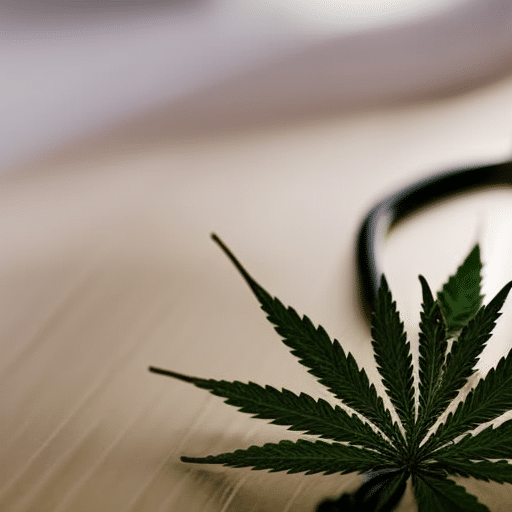In the state of Delaware, medical marijuana serves as a significant source of comfort, transcending its recreational use to support those in need. The journey to navigate the intersection of persistent discomfort and regulated therapeutic options is pivotal, with a keen understanding of the sanctioned conditions being essential.
Table of Contents
This comprehensive guide meticulously delineates the spectrum of health concerns, ranging from intense, enduring pain to life-limiting diseases, eligible for cannabis-based interventions.
As either a patient or a caregiver, it’s imperative to remain well-versed and proactive in leveraging the benefits offered by Delaware’s medical marijuana initiative to optimize healthcare outcomes.
Chronic Debilitating Conditions

In Delaware, you’ll come across several chronic debilitating conditions that qualify for medical marijuana treatment. The state’s medical program recognizes that patients with severe, long-lasting symptoms require effective management strategies. Medical marijuana serves as an essential option, particularly for those who’ve hit their pain thresholds and are seeking opioid alternatives.
You’re encouraged to consult with a healthcare provider who can determine if your condition aligns with the approved list, ensuring regulatory compliance. It’s important to note that medical marijuana isn’t a one-size-fits-all solution, and your provider will guide you through the process, tailoring treatment to your specific needs.
Severe Pain Management

Many individuals with chronic debilitating conditions experience severe pain, which you may find is effectively managed through the use of medical marijuana in Delaware. As you consider this option, it’s crucial to understand the regulatory framework and the professional approach to using cannabis for pain relief.
Here’s what you need to know:
-
Pain measurement techniques are essential for tailoring your treatment; Delaware health professionals may utilize various scales to assess pain levels.
-
Medical marijuana is considered alongside other alternative therapies, providing a multi-faceted approach to pain management.
-
Delaware law requires a qualifying diagnosis from a certified healthcare provider to use cannabis for severe pain.
-
Ongoing monitoring and consultation with your healthcare provider ensure responsible and effective use of medical marijuana.
Neurological Disorder Applications

While you navigate the complexities of neurological disorders, it’s important to know that Delaware recognizes several of these conditions as qualifying for medical marijuana treatment. If you’re seeking epilepsy treatment or migraine relief, medical marijuana may offer a new avenue of hope.
| Condition | Emotional Impact | Potential MMJ Benefit |
|---|---|---|
| Epilepsy | Anxiety, fear | Seizure reduction |
| Migraines | Debilitation | Pain alleviation |
| ALS | Desperation | Symptom management |
| MS | Frustration | Spasticity relief |
| Parkinson’s | Grief | Tremor control |
Your condition may be eligible for a treatment that provides not just relief but also a semblance of normalcy. It’s a step towards reclaiming the quality of life that neurological disorders often compromise.
Terminal Illnesses Eligibility

If you’re facing a terminal illness in Delaware, you may qualify for medical marijuana to help manage your symptoms and improve quality of life. The state recognizes the importance of compassionate end of life care and has integrated the use of medical marijuana into hospice settings.
To be eligible, you must comply with specific requirements:
- Obtain a written certification from a Delaware-licensed physician.
- Provide proof of a terminal illness with a prognosis of less than six months to live.
- Register with the Delaware Medical Marijuana Program.
- Adhere to the prescribed dosage and treatment regimen.
Staying informed and working closely with your healthcare provider will ensure your use of medical marijuana aligns with regulatory guidelines and effectively supports your needs during this challenging time.
Pediatric Patient Considerations
When addressing the relief of chronic symptoms in pediatric patients, you’ll find Delaware’s medical marijuana program includes specific provisions for minors under the age of 18. It’s crucial to understand that parental consent is mandatory for enrolling a minor in the program. This ensures that the responsible adult is fully informed and involved in the decision-making process regarding the child’s treatment with medical marijuana.
Additionally, dosage control is a paramount consideration. The state’s regulations emphasize the careful monitoring and strict control of dosage to ensure the safety and well-being of pediatric patients. As a caregiver or parent, you must adhere to these guidelines to maintain compliance with the law and to provide the most appropriate care for your child’s condition.
Frequently Asked Questions
How Does One Go About Renewing Their Medical Marijuana Card in Delaware, and Are There Any Specific Requirements for Renewal?
To renew your medical marijuana card in Delaware, you’ll need to submit documentation before the card’s expiration. Ensure it’s timely to maintain uninterrupted access. Check with the state’s program for specific renewal requirements.
Are There Any Employment Protections in Place for Registered Medical Marijuana Patients in Delaware?
As the saying goes, “Forewarned is forearmed.” You’re protected against workplace policies that would discriminate based on your status as a registered medical marijuana patient, ensuring no discrimination concerns affect your employment.
Can Out-Of-State Medical Marijuana Patients Use Their Cards to Obtain Marijuana in Delaware, or Is There a Reciprocity Agreement With Other States?
You’ll find Delaware doesn’t offer reciprocity for out-of-state medical marijuana cards. To obtain marijuana in Delaware, you must meet specific visiting qualifications, adhering to the state’s established limitations and regulatory requirements.
What Are the Legal Implications of Driving While Under the Influence of Medical Marijuana in Delaware, and How Does the State Measure Impairment?
If you’re caught driving impaired by medical marijuana, you’ll face penalties, including fines and possible jail time. Delaware uses sobriety tests to determine impairment, ensuring road safety while complying with regulations.
How Does Delaware Regulate the Cultivation and Distribution of Medical Marijuana, and Are Patients Allowed to Grow Their Own Plants for Personal Use?
In Delaware, cultivation licenses regulate who can grow medical marijuana. You can’t cultivate your own plants; personal cultivation isn’t permitted. The state ensures only licensed entities handle the cultivation and distribution process.
Conclusion
In the state of Delaware, medical marijuana serves as a significant therapeutic resource for individuals grappling with persistent pain, neurological conditions, and life-limiting diseases. It also extends its benefits to younger patients, albeit under rigorous regulatory scrutiny.
As the scope of these treatments broadens, it’s imperative to navigate this terrain with a clear understanding of the legal frameworks in place. Patients and caregivers are encouraged to stay well-informed and engage with healthcare professionals to ensure that the path to wellness not only adheres to the law but also embodies a deep sense of empathy.
By doing so, one can pursue an enhanced quality of life with the assurance of compliance and care.

